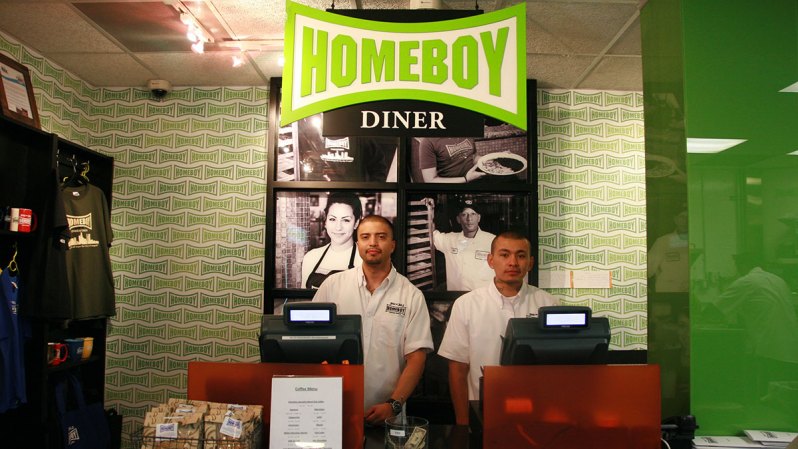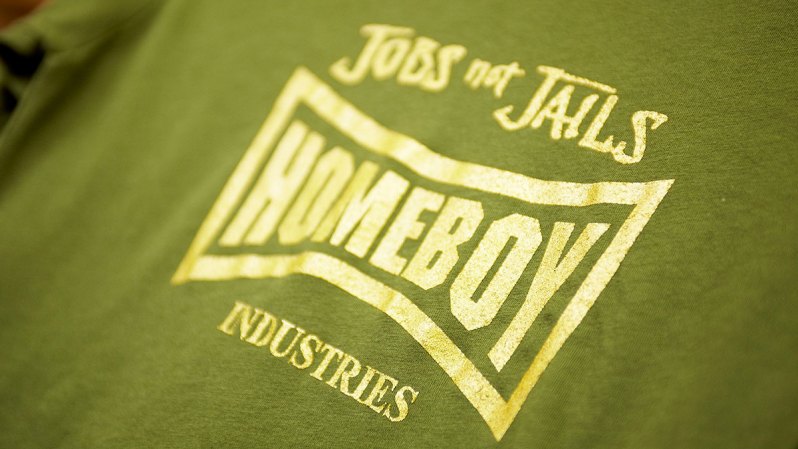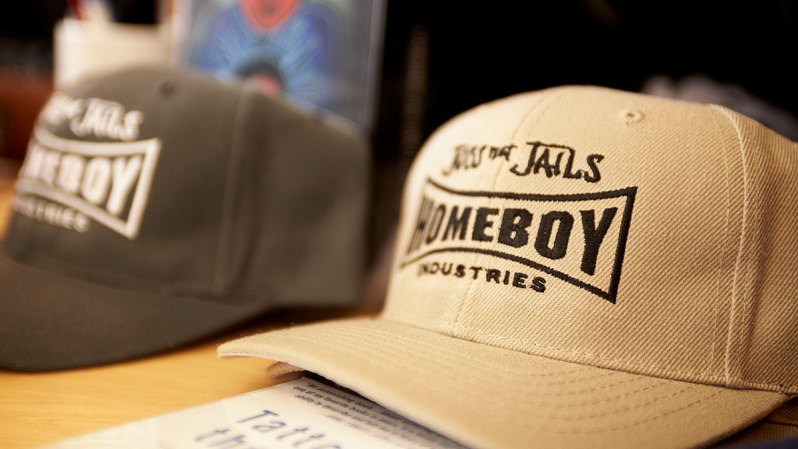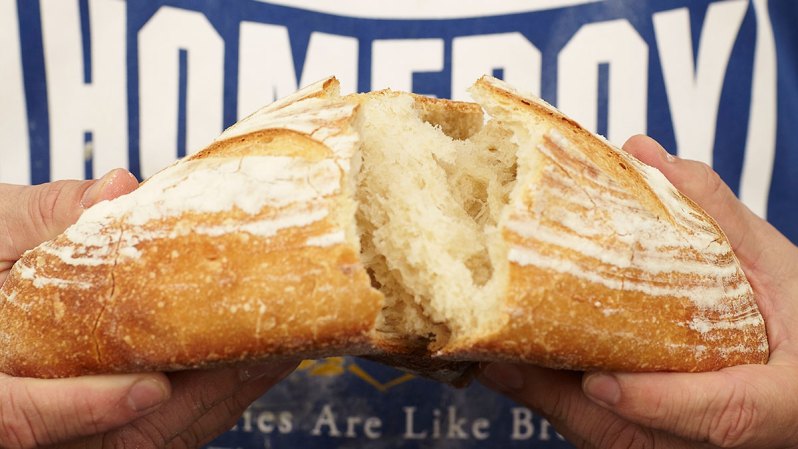It’s dangerously easy to dehumanize gang members. In reality, joining a gang is often a sign that the person has been badly failed by society. One priest in Los Angeles realized these men and women didn’t need “tough on crime,” they needed hope and opportunity. So, Rev. Greg Boyle started Homeboy Industries and since 1988, he and his organization have helped thousands of former gang members start a new life away from and outside of the violence.
Los Angeles didn’t earn the name “Gang Capital” of the US for nothing. Estimates suggest there are 450 active gangs in the city with a combined membership of 45,000 people. It’s easy to think maybe all this sunshine and kale juice just breeds “bad” people, but when you look at the socio-economics of the city, the reason becomes much clearer. A study in 2014 showed 40% of Californians were poor or near poor. LA County has the highest rate of poverty in the entire not-so-Golden State, accounting for 34% of the state’s poor population. In East LA, over half of the population doesn’t have a high school diploma.

There are a number of reasons people join gangs and almost all of them are directly related to the kind of world represented by those statistics. For example, gangs can provide protection from gang and/or rival gang violence surrounding them, it can provide a sense of family for people lacking a strong home environment, it can seem like the only way to attain a certain status in the world, and sometimes they’re forced to join under the threat of violence.
The recidivism statistic for gang youth is startling: two-thirds will be rearrested and another third will return to prison within a few years of release. Even from a purely economic standpoint, this cycle is problematic: According to a 2010 Pew study, the average day in prison costs taxpayers $79 whereas a person on probation only costs $3.42 a day. The takeaway is that communities need to do much, much more to help people re-enter society and earn a decent living.

Rev. Boyle, affectionately known as Father Greg, grew up in Los Angeles and in 1986 he became the pastor of the Dolores Mission Church in Boyle Heights, smack dab in the middle of gang-ridden East LA. He witnessed such bloodshed he’s renamed this time period as “the decade of death.” The 1980s was also a time of “tough on crime” posturing from politicians, which may have sounded good on TV, but proved to be a disaster in real life. Instead, Father Greg chose to see gang members as humans. Humans who needed help.
In 1992, in the wake of the LA Riots, he launched Jobs for a Future and Proyecto Pastoral at the church. They bought an abandoned bakery with the help of movie producer Ray Stark (there’s no way you haven’t seen at least one of his films) and started the Homeboy Bakery. Cut to: 2001 and the Homeboy Bakery has proved such a success as a social enterprise business, Homeboy Industries is born.

Homeboy Industries covers an incredible gambit of things badly needed by people trying to recover their lives from LA gangs. The first of which is actually tattoo removal. They remove more tattoos than any other organization, helping to erase painful memories and associations that could prevent reentering society or getting a job. Thirty-five doctors volunteer to remove tattoos, focusing specifically on any gang-related ink. Legal services are available, offering free consultations on everything from post-conviction issues to child support and visitation. The legal team also petitions for dismissals and record expungements, things often neglected by an overwhelmed public defender’s office, to help in broadening a person’s employment opportunities.
Education is a huge component of Homeboy Industries, offering forty classes a week to help with earning a GED, college prep, test readiness, reading and writing. They also offer classes in anger management, parenting, and self-sufficiency. Recovery groups like AA and Criminals and Gang Members Anonymous are provided as well.

Through a number of volunteer licensed psychotherapists, people gain access to individual therapy, the court-approved Domestic Violence Intervention for Men program, substance abuse, Baby & Me classes to help parents understand the needs of their children.
Homeboy Industries also provides tuition, supplies, and additional tutoring for the awesome Photovoltaic Training program at the East Los Angeles Skills Center. Here students get training to work in the solar power industry. They’ve had almost 1,000 Homeboy clients go through the program and they have a graduation rate of 92%. An incredible 70% of those graduates have a job within 90 days of completing the program.
The average month at Homeboy Industries sees around 1,000 former gang members or people recently released from prison come through their doors. They’re performing 800 free tattoo removals, providing 140 legal counseling appointments, 120 mental health sessions, teaching and mentoring 400 students, and helping 240 job trainees, begging the question does the staff ever sleep?
And we haven’t even mentioned the Homeboy businesses yet. You’ve got Homegirl Cafe, where high-risk youth get a chance at sustainable employment in the culinary arts, ultimately earning a certificate. The original bakery is still cookin’, serving up from-scratch artisan breads and pastries that are insanely delicious and available at restaurants around the city. You’ve got Homeboy Silkscreen and Embroidery for all your custom needs, a catering service, their grocery line, offering truly some of the best pre-made salsa and guacamole you’ll ever taste, the Diner at City Hall, booths at farmer’s markets, and their line of shirts, bags, books, and other goodies.
Gangs are responsible for some horrific acts of violence, but the people in them are just that– people. Father Greg had the courage to recognize that fact and found the solution to stemming the tide of violence and incarceration in providing what people need– education, hope, kindness, and opportunity.

